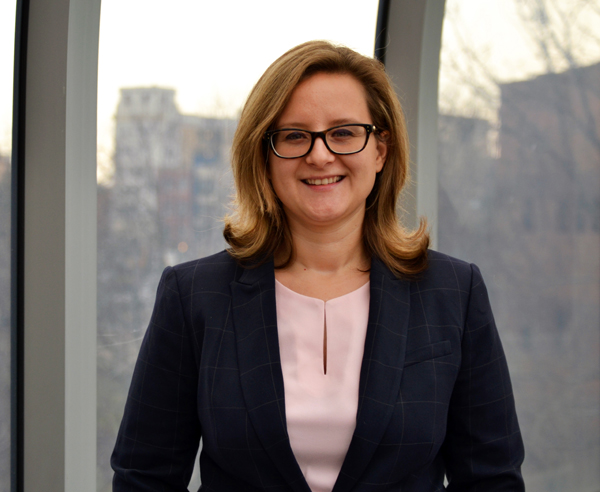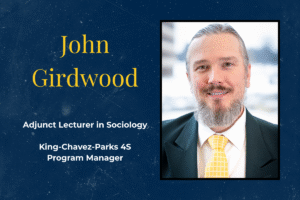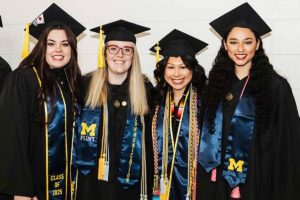Besa Xhabija, PhD, joined the UM-Flint College of Arts and Sciences in Fall 2017 as an assistant professor in the Department of Chemistry and Biochemistry.
Read below to learn more about Dr. Xhabija and her field of biochemistry or join her in one of her upcoming class:
- CHM 350: Fundamentals of Biochemistry
- CHM 382: Environmental Toxicology
- CHM 451: Biochemistry Laboratory I
- CHM 453: Biochemistry Laboratory II
Admitted students can register at sis.umflint.edu or find more information about upcoming semesters at umflint.edu/register.
What is your background and education?
I completed my Bachelor of Science with Honors in Biochemistry from York University, Toronto, Ontario, Canada and my Doctorate in Chemistry and Biochemistry from the University of Windsor (also in Canada) under the supervision of Dr. Panayiotis Vacratsis. I then continued on to a Postdoctoral Fellowship at the Karmanos Cancer Institute and Wayne State University School of Medicine in the Department of Oncology, where I worked with Dr. Benjamin Kidder. My work there focused on studying stem cell and cancer epigenetics, specifically evaluating the functions of chromatin modifying enzymes in self-renewal and genome stability.
Why are you passionate about your field?
I absolutely adore Biochemistry. It was my first love! I believe that it is the science that will open a window of understanding about how life has evolved from a one cell organism to becoming a well-oiled intricate organism. Understanding that living things are just bags of chemicals that can function in order to think, remember, behave, walk, run, talk, read, write, is absolutely fascinating to me. I am amazed at how basic elements, such as carbon, nitrogen, oxygen, hydrogen can make up a bacterial cell, yeast, skin cells, muscle cells, neurons, retinal cells, and organisms generally. This is something that I still find mesmerizing to this day.
How did you fall in love with your discipline?
This is an easy one. I fell in love with biochemistry when I was a junior in high school when we covered the principles of DNA and nucleic acids. I remember myself being very excited about the topic. I started reading on my own and learning the most that I could about how a disease is caused at the genetic level and how to solve biological problems—not realizing that I just scratched the surface of the biochemistry field. Later on, I started reading about the human body on my own and trying to understand, with very little scientific background at that time, how it functions at a molecular and cellular level. I am very glad to have chosen biochemistry as my field of expertise because it truly is my passion and not only it drives my discovery-based research approach in my lab, but also helps me teach with the passion to inspire others to do the same.
What are your favorite courses/subjects to teach?
It probably is not a surprise, but any level of Biochemistry.
What is your latest or favorite research project?
Currently, I am in the process of setting up a system in my laboratory utilizing embryonic stem cells to study the effect of various toxins and drugs in embryo development. I am very excited about this project and I find it very informative for students and for the Flint community. Moreover, it offers students a large number of research techniques that are essential in any research laboratory.
What do you hope for your time at UM-Flint?
I hope to play an important role as an educator, in particular to sharpen students’ aspirations and allow them to develop their own branch of research or thoughts. I believe that only by pushing and supporting our students to perform to their full potential via promoting collaboration makes them succeed in their future academic paths.
Why were you excited to join UM-Flint and the Flint community?
I consider myself fortunate to have been a member of the UM-Flint Community prior to joining as a full-time faculty member now. I served as lecturer at the Department of Chemistry and Biochemistry in the Fall of 2016 and I was really pleased to see how strong the bonds between faculty, staff and students are.
What do you hope for students in your field?
I hope for them to become good citizens and follow their chosen path with dedication, passion and strong ethics. I hope for them to inspire and motivate future generations and make this world a better place. I want to encourage those who choose to educate, to educate with passion, I want the health care professionals to serve their patients with care and go the extra mile. Finally, regardless what path they take, I hope that our students find their niche where they love what they do and do everything with passion and dedication. I believe that mediocrity is the enemy to success and that is something that I fight every day and encourage students to avoid avidly.
What are three things you think people should know about you?
- I live in Canada.
- My door is always open and students should feel free to discuss things with me.
- I enjoy biking.





